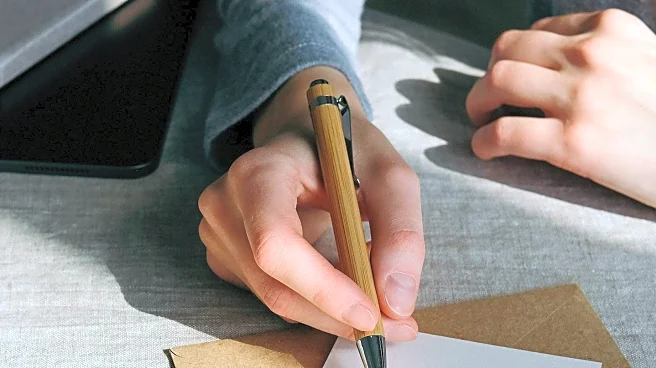What's Happening?
In the legal profession, the practice of sending handwritten thank you notes is gaining renewed attention as a powerful tool for building and maintaining professional relationships. Sharon Meit Abrahams highlights the importance of this gesture in an era
dominated by digital communication. The thank you note, whether addressed to a client, mentor, colleague, or opposing counsel, serves as a meaningful expression of gratitude and professionalism. This practice is seen as a way to enhance one's professional presence and foster trust and reputation within the legal community.
Why It's Important?
The resurgence of handwritten thank you notes in the legal profession underscores the value of personal connections in a field that relies heavily on relationships and trust. In an increasingly digital world, such gestures can differentiate professionals and strengthen bonds that are crucial for career advancement and client retention. This trend may influence how legal professionals approach communication, emphasizing the importance of personal touch in an industry where reputation is paramount. The impact on U.S. legal practices could be significant, as firms and individuals seek to enhance their professional image and client relationships through traditional means.
What's Next?
As the practice of sending thank you notes gains traction, legal professionals may increasingly incorporate this gesture into their communication strategies. Firms might encourage their teams to adopt this practice as part of their client engagement and relationship-building efforts. This could lead to a broader cultural shift within the legal industry, where personal gestures become integral to professional interactions. The emphasis on traditional communication methods may also inspire other industries to revisit the value of personal connections in business dealings.
Beyond the Headlines
The renewed focus on thank you notes in the legal profession may also have implications for the industry's approach to mentorship and networking. By fostering deeper connections through personal gestures, legal professionals can create more supportive and collaborative environments. This practice could contribute to a more inclusive and empathetic culture within the legal community, where individuals feel valued and appreciated.















